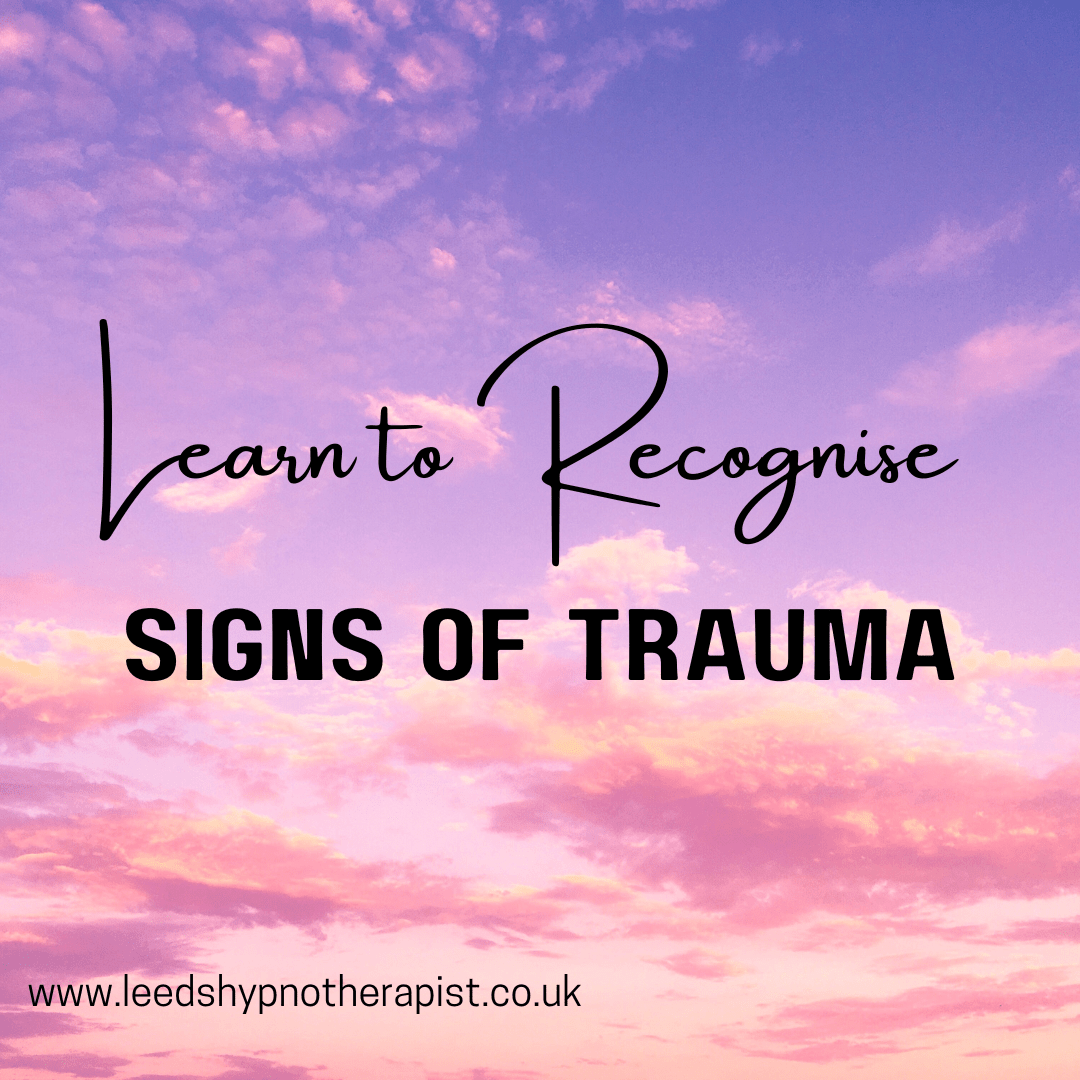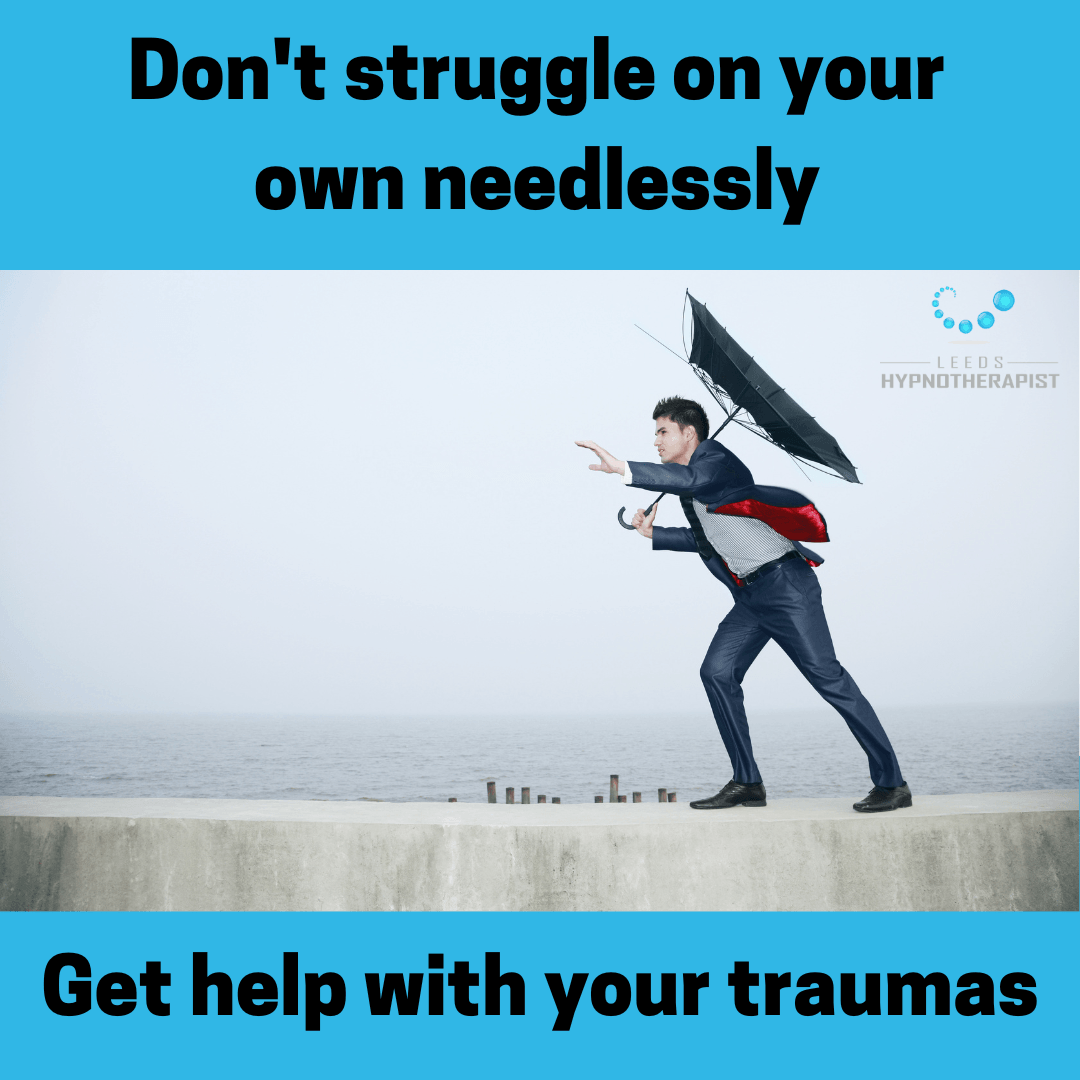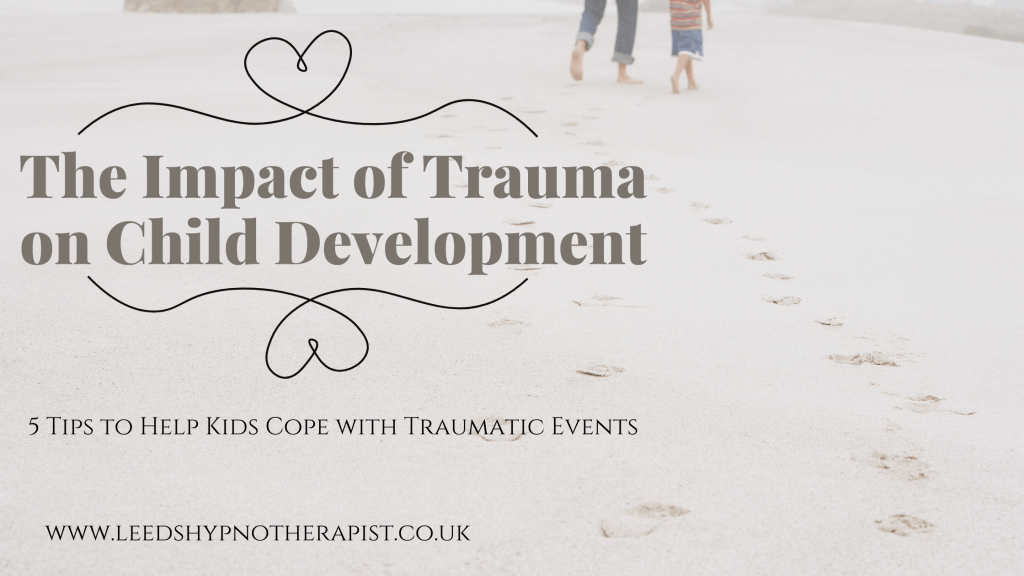It’s no secret that childhood trauma along with the impact of trauma on child development can have a significant impact on a child. Emotional, behavioural, social and cognitive problems can last into adulthood if not treated properly. Traumatic experiences can also cause physical health problems.
It is important for parents to be aware of the signs of traumatic stress in their children and to seek help if needed. There are many resources available to help kids cope with traumatic events. In this article, I will share with you five tips to help you to get started.
What is childhood trauma and what are the effects of the impact of trauma on child development
Childhood trauma is defined as exposure to potentially harmful events before the age of 18. These events can include physical, emotional, or sexual abuse, witnessing violence, or growing up in a household with substance abuse or mental illness.
It includes any event that is emotionally painful or frightening. childhood trauma can have long-lasting effects on physical and mental health. It can also lead to problems in relationships, work, and school.
childhood trauma is often caused by abuse or neglect. It can also be caused by violence, war, or natural disasters. The effects of childhood trauma depend on many factors. These include the type of trauma, the child’s age when it happened, how long it lasted, and whether the child had support from adults.
Childhood trauma can cause physical health problems. These include heart disease, obesity, diabetes, and cancer. Childhood trauma can also lead to mental health problems. These include anxiety, depression, post-traumatic stress disorder (PTSD), and substance abuse disorders.
Childhood trauma can have a lasting effect on child development. It can influence how the brain develops and how children think, feel, and behave. Childhood trauma can make it hard for children to trust people, feel safe, and cope with stress.
However, there is hope for those who have experienced childhood trauma. It is important to remember that children are resilient. With support from adults, they can overcome the effects of childhood trauma and lead healthy lives.
How can parents identify the signs of traumatic stress in their children?
Traumatic experiences can have a profound effect on children. In fact, childhood trauma is one of the most significant risk factors for developing mental health problems later in life. Unfortunately, many children who have experienced trauma do not receive the support they need to heal and recover.
As a result, parents need to be aware of the signs of traumatic stress in order to ensure their children get the help they need.
Some of the most common signs of childhood trauma include persistent anxiety, intrusive thoughts or flashbacks, nightmares, difficulty concentrating, and avoidance of people or places associated with the trauma. Children may also experience physical symptoms such as headaches, stomach aches, and feeling constantly on edge.
If your child is exhibiting any of these signs, it is important to talk to a mental health professional about what they are experiencing. With proper treatment and support, children can recover from even the most traumatic experiences.
Physical health symptoms of childhood trauma
Childhood trauma can manifest in a variety of ways, both emotional and physical. Parents who are aware of the symptoms of childhood trauma can help their children heal and get the resources they need to cope.
One of the most common physical health symptoms of childhood trauma is headaches. This can be caused by the stress of the traumatic event, as well as by any underlying emotional issues. Other physical health symptoms include stomach problems, such as nausea or diarrhoea. This is often due to the child’s anxiety around food, as well as any nutrient deficiencies that may have resulted from the trauma.
In some cases, children may also experience bed-wetting or wetting themselves during the day. This is often a sign of anxiety or fear, and it can be very distressing for the child.
If you notice any of these physical health symptoms in your child, it’s important to seek professional help. A therapist or counsellor who specializes in childhood trauma can provide your child with the support they need to heal. With proper assistance, your child can overcome their trauma and lead a healthy, happy life.
Mental health symptoms of childhood trauma
Parents play an important role in their children’s lives, and they can help protect their children from experiencing traumatic events. Unfortunately, childhood trauma is surprisingly common, with studies estimating that around 60% of children will experience at least one traumatic event before the age of 16. In fact, research has shown that children who have experienced trauma are more likely to develop symptoms of anxiety, depression, and post-traumatic stress disorder (PTSD).
However, if a child does experience trauma, it is important for parents to be aware of the potential mental health symptoms that may result.
These can include changes in sleeping or eating habits, withdrawn behaviour, outbursts of anger, and increased anxiety or worry. If a child exhibits any of these signs, it may be indicative of underlying childhood trauma.
In such cases, it is important to seek professional help to address the issue and promote healing. By being attuned to the potential mental health consequences of childhood trauma, parents can provide their children with the support they need to recover and thrive.

What are some resources available to help kids cope with traumatic events?
According to the National Society for the Prevention of Cruelty to Children (NSPCC), childhood trauma is a major issue in the United Kingdom. each year, thousands of children are exposed to traumatic events such as abuse, neglect, and natural disasters. As a result, many children struggle with mental health issues such as anxiety, depression, and post-traumatic stress disorder (PTSD). The good news is that there are a number of resources available to help kids cope with trauma.
For example, the NSPCC offers counselling and therapy services for children who have been affected by traumatic events. In addition, there are a number of charities and non-profit organizations that provide support for kids coping with childhood trauma.
With the right support, kids can overcome the challenges associated with childhood trauma and go on to lead happy and healthy lives. Here are some of the best resources to help you if you or your child has experienced childhood trauma:
– The National Child Traumatic Stress Network
The National Child Traumatic Stress Network (NCTSN) is a world-renowned center of excellence dedicated to helping children and families heal from the lasting effects of childhood trauma. Childhood trauma can occur after exposure to any event that results in psychological or physical harm, such as abuse, neglect, natural disasters, or violence. These experiences can have a profound and lasting effect on mental health, leading to increased risk for problems like anxiety, depression, substance abuse, and suicide.
The NCTSN is committed to improving access to quality care for children and families affected by childhood trauma. Through research, training, and technical assistance, the NCTSN works to ensure that all children and families have the support they need to heal.
– MIND
MIND is a mental health charity that provides support and information to people affected by mental illness. The charity Mind estimates that 1 in 4 people will experience a mental health problem in any given year. childhood trauma is a major risk factor for developing mental health problems. Traumatic events can include physical, sexual, or emotional abuse, witnessing violence, or losing a loved one.
Childhood trauma can lead to changes in the brain that make it more difficult to cope with stress, increasing the risk of developing mental health problems. The charity Mind offers support and information to people affected by mental illness, including those who have experienced childhood trauma. The charity also works to raise awareness of mental health issues and provide education on how to maintain mental well-being.
– The Anna Freud Centre
The Anna Freud Centre is a charity that works to promote mental health services and wellbeing in children and young people. The Centre was founded in 1966 by Anna Freud, a pioneering figure in the field of child psychoanalysis. Since its inception, the Centre has provided vital support to children and families affected by childhood trauma.
The Centre offers a range of mental health services, including individual and group therapy, specialist assessments, and training for professionals. The Centre also campaigns to raise awareness of childhood mental health issues and to ultimately improve childhood mental health policy and practice.
The work of the Anna Freud Centre is vital in promoting the mental and physical health and well-being of children and young people.
– YoungMinds
The charity YoungMinds is dedicated to improving the lives of children and young people in the UK. One of the main ways they do this is by providing support for those who have experienced childhood trauma. This can include physical or sexual abuse or any other unresolved childhood trauma.
YoungMinds also works to raise awareness of childhood mental and physical health issues and to provide information and resources for families and professionals. In addition, the charity offers training and development opportunities for those working with children and young people.
Thanks to the work of YoungMinds, countless children and young people have been able to get the support they need to overcome childhood trauma and go on to lead happy and healthy lives.
– The Samaritans
The Samaritans is a charity that provides emotional support to people who are experiencing feelings of distress or despair. The charity was founded in 1953 by a woman named Catherine Wills, who witnessed the death of a young man who had jumped from a bridge. Wills was deeply affected by this incident, and she decided to do something to help other people who were struggling with mental health issues.
The Samaritans provide a confidential telephone helpline that people can call if they need someone to talk to. The charity also offers face-to-face support, email support, and online chat support. The Samaritans also run campaigns to raise awareness of mental health issues and to reduce the stigma surrounding mental illness. The charity has been particularly active in raising awareness of childhood trauma and the adverse childhood experiences that can lead to psychological problems in adulthood.
The Samaritans provide an invaluable service to those who are struggling with mental health issues, and their work is vital in helping to reduce the stigma surrounding mental illness.
– Hypnotherapy
Hypnotherapy is a mental health treatment that can be highly effective in treating childhood trauma. By working with a certified hypnotherapist, people can learn to alter their emotional responses to triggers and increase their overall emotional health. Hypnosis can help people to deal with the effects of physical abuse, childhood abuse, childhood trauma exposure and other unresolved childhood trauma.
In many cases, hypnotherapy can provide relief from symptoms that have been resistant to other forms of treatment. If you or someone you know is struggling with the effects of childhood trauma, hypnotherapy may be a viable and trusted option for treatment.
5 tips to help deal with childhood trauma
If you or someone you know is struggling with the effects of childhood trauma, here are five tips that may help.
1. Seek professional help if needed
It is estimated that one in four girls and one in six boys will be sexually abused before they reach the age of 18. This statistic does not include other forms of abuse, such as physical or emotional abuse. Unfortunately, many children suffer in silence, afraid to tell anyone about the abuse. This is why it is so important to seek professional help if you suspect that a child has been traumatized.
Hypnotherapy can be an effective treatment for childhood trauma. During hypnosis, the child is in a relaxed state and is more open to suggestion. The therapist can help the child to access memories of the trauma and then work through those memories to release any negative emotions associated with them.
Furthermore, hypnotherapy can help to change negative self-beliefs and behaviours that may have developed as a result of the trauma. Hypnotherapy can also help the child to develop coping mechanisms for dealing with triggers and flashbacks.
If you suspect that a child in your life has suffered from trauma, don’t hesitate to seek professional help.

2. Don’t try to deal with childhood trauma on your own
One in four people will have a traumatic experience at some point in their lives, and as many as 60% of those individuals will go on to develop post-traumatic stress disorder (PTSD). Childhood trauma can have a particularly profound and lasting impact, leading to self-destructive behaviours (such as self-harm, alcohol and drug issues and eating disorders), difficulties in personal relationships, and a range of mental health problems. Despite the fact that childhood trauma is relatively common, many people try to deal with the aftermath on their own.
This can be a mistake, as unresolved trauma can lead to further difficulties down the road. Hypnotherapy is one treatment option that can be helpful in addressing the effects of childhood trauma.
Hypnosis can help to break the cycle of self-destructive behaviours, such as self-harm, and can also provide a safe space to process traumatic memories. By working with a trained hypnotherapist, individuals can begin to move beyond their trauma and live fuller, healthier lives.
3. Show your child that you are there for them
It’s not uncommon for children who have experienced trauma to have such intense reactions that they seem out of proportion to the event. This can be confusing and frustrating for both the child and the parent.
It’s important to remember that your child is not acting out or trying to be difficult, but is instead responding to a very real sense of fear. By remaining calm and supportive, you can help your child begin to process their experience and start on the road to emotional healing.
Recognizing that your child is going through a tough time is an important first step. Showing them that you are there for them, no matter what is also critical. This sends the message that you are a safe and reliable source of support, which can be incredibly helpful for a child who has just experienced a traumatic event.
Lastly, do your best to create a sense of stability in their life. This may mean following a regular routine or ensuring that they have access to familiar activities and comforts. By providing these things, you can help your child feel safe and secure while they heal from their trauma.
4. Help your child to express their feelings
It is essential for children to learn how to express their emotions in a healthy way. Emotional health is just as important as physical health, and children who don’t learn how to cope with their emotions can face a variety of problems later in life. For example, they may have difficulty forming relationships, coping with stress, or dealing with traumatic experiences.
When children can label their feelings, they are better equipped to deal with them in a constructive way. This is especially important when they experience a traumatic event or something that upsets them. If children can’t express their emotional reactions, they are more likely to internalize them, which can lead to emotional problems down the road.
Additionally, children who cannot express their emotions are more likely to act out in destructive ways, such as through violence or substance abuse. By helping your child to express their feelings, you can help them to develop into a well-rounded and emotionally healthy individual and learn emotional regulation from a young age.
5. Get involved in supporting childhood mental health charities
It is estimated that one in five children in the UK will experience a mental health problem at some point in their lives. For many children, these problems will be short-lived and will not have a significant impact on their day-to-day lives. However, for some children, mental health problems can be long-lasting and can have a profound effect on their emotional well-being.
Childhood mental health charities provide vital support for these children and their families. By getting involved with such charities, you can help to raise awareness of childhood mental health issues and provide vital funds for research and support services. In addition, by getting involved you will also be helping to support your own child’s emotional health. If your child has experienced a traumatic event or has been diagnosed with a mental health disorder, getting involved with a charity can help them to feel less alone and provide them with a support network.
Ultimately, by getting involved with a childhood mental health charity, you can help to make a difference to the lives of countless children and families.
Another note: Take care of yourself emotionally and spiritually.
Just as it is important to take care of your physical health, it is also essential to take care of your emotional and spiritual health. emotional health is an essential part of overall well-being, and it can impact every aspect of your life.
Traumatic experiences can lead to emotional difficulties, and if left unresolved, these issues can become severe. That’s why it’s so important to take care of yourself emotionally and spiritually.
By finding healthy ways to cope with stress and trauma, you can prevent emotional difficulties from becoming entrenched.
Unfortunately, emotional health is often overlooked in favour of physical health. This is particularly true in Western cultures, where the mind-body connection is not always fully understood or accepted. However, it is crucial to understand that our emotional and spiritual well-being are intricately linked to our physical health. When we take care of ourselves emotionally and spiritually, we are better able to take care of our bodies.
Taking care of yourself emotionally and spiritually can also help you to be more resilient in the face of challenges and to enjoy a greater sense of fulfilment in life. We are also more likely to experience joy, peace, and satisfaction in life. Therefore, it is essential that we take the time to nurture our emotional and spiritual needs.
How can parents help their children heal from childhood trauma?
Parents can help their children heal from childhood trauma by providing a supportive environment, listening to their children’s feelings, and getting involved in childhood mental health charities. It is also important for parents to take care of themselves emotionally and spiritually in order to provide support for their children. Ultimately, by taking these steps, parents can help their children to heal from childhood trauma and to develop into well-rounded and emotionally healthy adults.
Final thoughts
Childhood trauma can have a profound and long-lasting impact on a child’s development. However, with the right support, children can overcome their experiences and lead happy and fulfilling lives.
Hypnotherapy can be an effective treatment for childhood trauma that has not been resolved. Hypnosis can help to release emotions and memories that are trapped in the subconscious mind, allowing the individual to process them in a healthy way. In addition, hypnotherapy can also help to improve emotional well-being and reduce stress levels. If you are considering hypnotherapy as a treatment for childhood trauma, it is important to consult with a qualified practitioner who has experience working with this issue.




